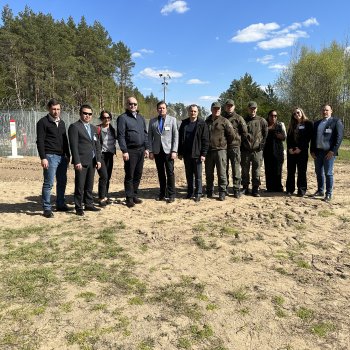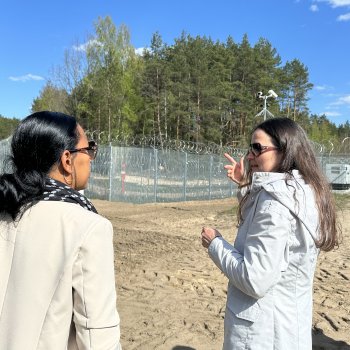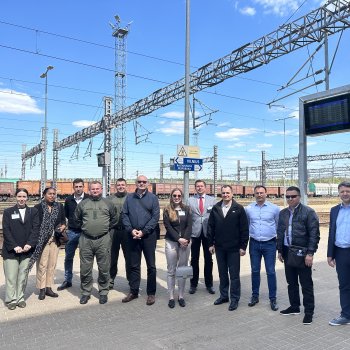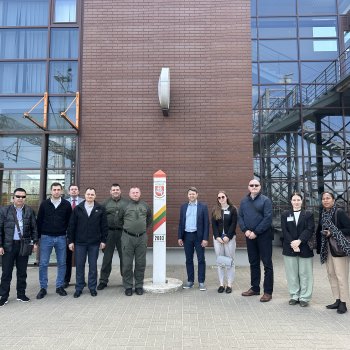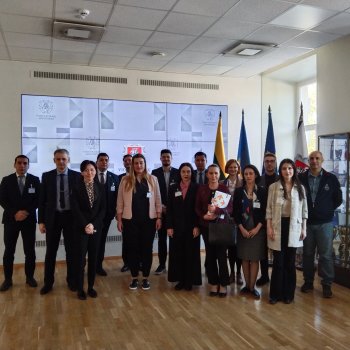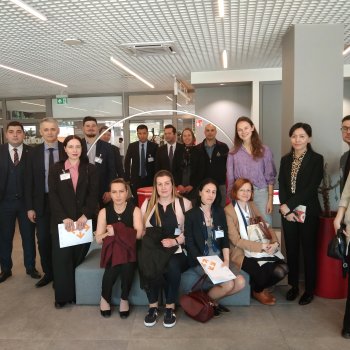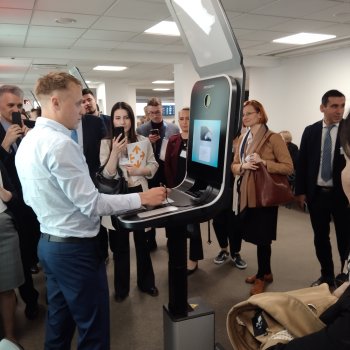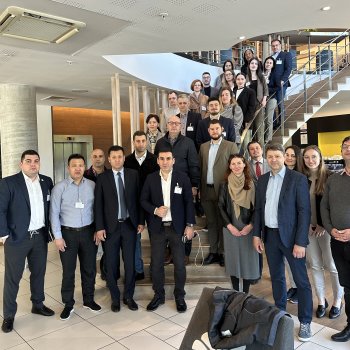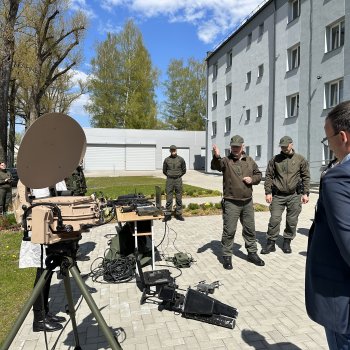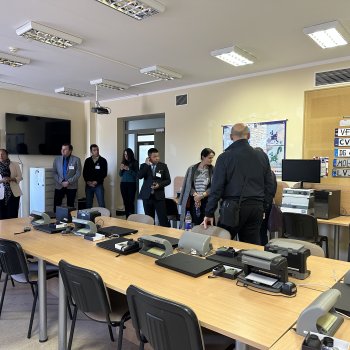Upon the invitation of the Ministry of the Interior of the Republic of Lithuania, a Study Visit to Lithuania took place on 9-10 May 2023, gathering 25 officials from 14 countries. The visit featured two separate programmes: one for representatives of migration authorities and another for representatives of border guards of the Prague Process states. Participants had an opportunity to get acquainted with the relevant institutions in Lithuania, their work, organization and legislative basis.
The representatives of the migration authorities first visited the Ministry of the Interior where Vice Minister Arnoldas Abramavicius welcomed them, underlining that migration constitutes a key national priority since the hybrid attack and instrumentalisation of migrants on behalf of Belarus experienced in 2021, which brought more than 4.000 persons into the country. Less than a year later, Russia’s invasion into Ukraine resulted in the arrival of more than 70.000 displaced persons to Lithuania, which has thus received the third highest per capita share of Ukrainians, following the Czech Republic and Poland. As the country is experiencing substantial labour shortages, there is hope that these people could support the national labour market and economy. Some 12.000 Ukrainian kids have been accommodated in the school system. Lithuania has attempted to spread the received population across the country. The neighbourhood to Belarus and Russia has resulted in the need to install physical barriers, which has been accomplished within a year. While the national border is now much better protected, irregular border crossings continue on a daily basis. Nationals of Belarus have come to Lithuania for employment. Especially those fleeing the country following the fraudulent elections have been welcomed to the country. Meanwhile, the access of Russian nationals has been restricted following the full-fledged invasion of Ukraine. While the Russian Federation has not yet organised migration towards Lithuania, the geographic location of Kaliningrad brings other security concerns. Whereas the transfer of goods is sustained, no more visas are being issued. The Vice-Minister underlined the importance of international cooperation, particularly with its neighbours Estonia, Latvia and Poland who all face similar challenges.
During their subsequent visit to the Migration Department, participants learned about the latest migration policy development, migration procedures and main challenges Lithuania is facing at present. Participants were also introduced to the electronic migration system MIGRIS, which has recently been set up. The group then paid a visit to the International House Vilnius and Vilnius Migration Division to learn about their respective customer services.
On Day 2, the migration officials had an opportunity to learn about the work of the Employment Service in accommodating refugees and asylum seekers into the national labour market, as well as the respective role of social partners. Lithuania has been particularly successful in integrating Ukrainian under temporary protection into its labour market. Finally, the migration experts paid a visit to the Refugee Reception Centre to experience the reception conditions and learn about the recent challenges faced and solutions introduced.
The border guard group visited Medininkai State Border Guard School and had a chance to interact with the School’s management on concrete activities and policies in educating border guards. Some of the participants, expressed interest in cooperation and possible exchange of students between the school in Lithuania and their country. The School representatives also touched upon the assistance they provided and accommodation of refugees during the migration crisis in 2021. During the visit to Lithuania-Belarus border at the Žagunio Border Station, the participants had an opportunity to learn more about the crisis and how the country addressed it, including through its prompt building of the physical barrier and advanced surveillance system.
On day 2, the border guard group visited the Foreigners' Registration Centre in Pabradė where the representative of the Centre showed the detention facilities as well as elaborated on the Centre’s activities. Lastly, the participants had a chance to see the Lithuania-Belarus border at the Kenos Border Station where they learned about the transit to Kaliningrad scheme and all the challenges connected to it.
The Study Visit to Lithuania aligned and contributed to the implementation of the Prague Process Action Plan 2023-2027. The vast majority of participants showed great interest to learn about the organization of the migration and border authorities in Lithuania in more detail. The participation of several EU countries (Czech Republic, Denmark, Hungary, the Netherlands and Romania) along with a number of non-EU Prague Process countries enabled a fruitful exchange and allowed for identifying possible areas for future cooperation and synergies. Some states underlined the need to stay up to date concerning partner countries’ recent challenges and solutions in the area of migration management. Overall, the format of study visits is very much appreciated.




